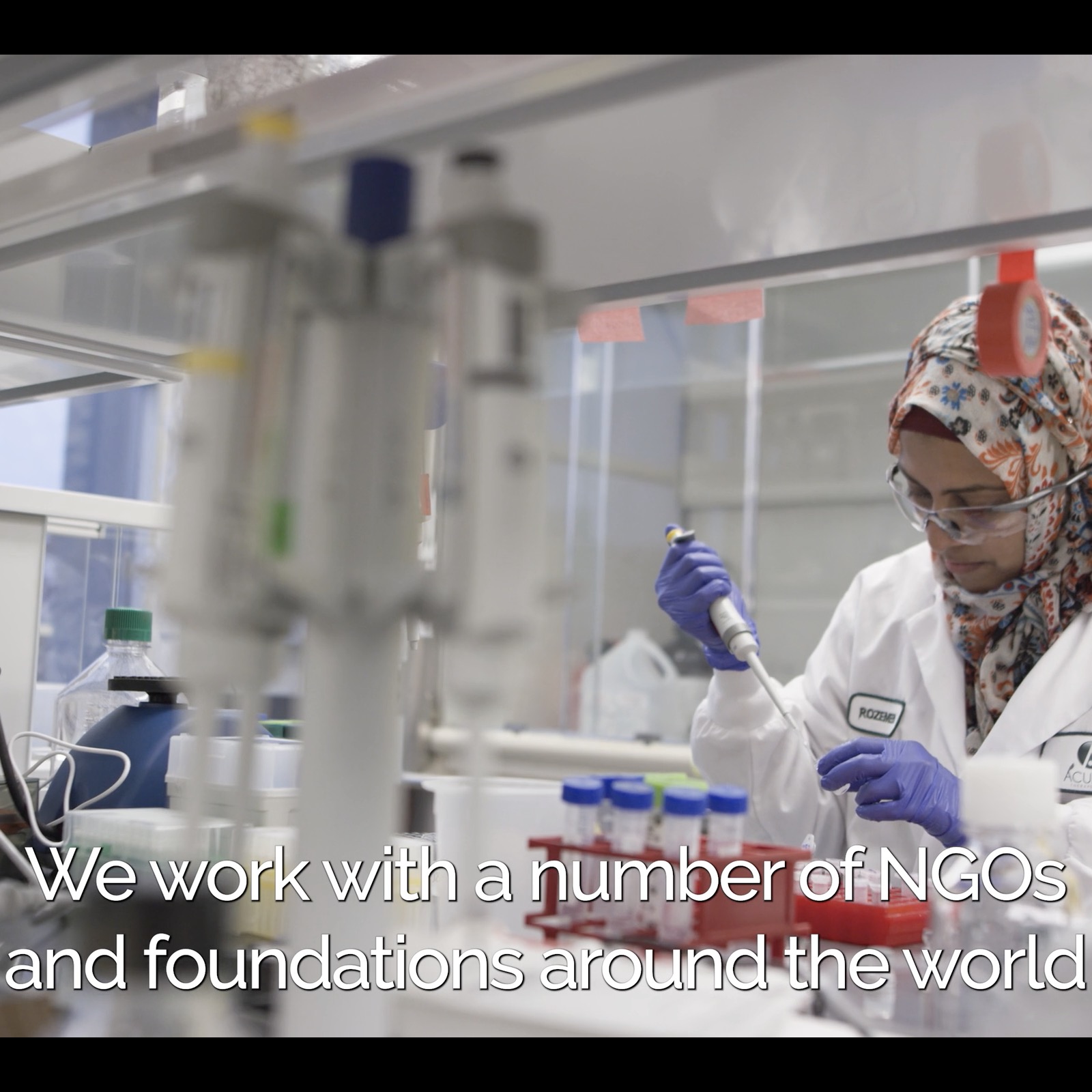
LNP & COVID-19 Vaccine FAQs
We get a lot of questions from family and friends about vaccines and how our proprietary lipid nanoparticle (LNP) delivery system works with COVID-19 vaccines. We wanted to share this information to help provide an accurate understanding of the efficacy and safety of COVID-19 mRNA vaccines.
How do vaccines work?
Vaccines train our body’s immune system to recognize and destroy a particular virus. This prevents the virus from being able to infect our body and cause disease.
How does our immune system “recognize” a particular virus?
In most cases, our immune system recognizes a specific part that is on the outside of the virus and that is often needed by the virus to infect cells in our body.
What is different about the vaccines that Acuitas Therapeutics is helping to develop?
The vaccines that Acuitas is helping to develop use a new technology called messenger RNA (or mRNA) technology. This allows vaccines to be developed much more quickly than ever before. Rather than injecting the entire virus as a vaccine, mRNA tells our body to make the component of the virus that our immune system recognizes.
Why is the technology called messenger RNA?
All living organisms, including humans and viruses, make proteins. Proteins are the workhorses that carry out all of the tasks needed by that organism. The “blueprints” for these proteins are in our genes (DNA), but this information needs to be converted into a message that tells the body to make a particular protein. This message is called messenger RNA (mRNA). An mRNA for a virus will tell the body to make a viral protein.
Scientists can make a synthetic mRNA that provides the body with the information to make any protein that is needed.
What technology does Acuitas provide that allows mRNA vaccines to work?
If we want to use a synthetic mRNA as a vaccine (or a drug), there are two challenges. First, the mRNA is very fragile and if injected into the body, it would break down very quickly. Second, it is a very large biological molecule and it cannot get into our cells – and it needs to get into the cells in our body to work. Acuitas provides tiny delivery vehicles (lipid nanoparticles) that protect the mRNA after it is injected and then the lipid nanoparticles carry the mRNA into our cells, allowing it to do its important job.
Can you provide an analogy as to how the Acuitas LNP delivery technology works?
Imagine that you want to buy an exceptionally fragile glass ornament online and you would like to have it delivered to your home. If you used the equivalent of the Acuitas delivery technology, we would pack the ornament inside our carrier to shield it. No matter how bumpy or rough the journey was, our delivery technology would make sure that the ornament was protected. Our carrier would find your house, open the front door by itself, let itself in, unwrap your glass ornament, and leave it in the front hallway for you to pick up.
How does the Acuitas team work with partners in developing a vaccine? What is this process?
The first step is to identify and select the viral part that our immune system will be best able to recognize. Our partner synthesizes the mRNA. This mRNA is then provided to Acuitas and we put it inside our lipid nanoparticles (LNP). We then send the mRNA, packaged inside our LNP, back to our partner to test. Once these studies have been completed – and submitted to the regulatory authorities for review – clinical trials can begin.
Do all vaccines need a technology similar to what Acuitas has developed?
No, older vaccines are often just the virus itself in a form that does not cause disease. It is only new vaccine technology, such as mRNA, that needs LNP delivery technology.
How is Acuitas technology developed in a unique manner for each virus?
Acuitas has devoted many years of research to create an LNP carrier that works really well for mRNA vaccines. An advantage we now have is that this same LNP carrier can be used for many different mRNA vaccines.
The components that make the LNP carrier are unique to Acuitas and because they are used in a pharmaceutical product, they need to be manufactured under very stringent conditions to ensure their purity and safety. Different mRNA vaccines can use these same LNP components which are now available from Acuitas. This greatly simplifies and streamlines the development of new mRNA vaccines.
It is crucial that, for each new mRNA vaccine, Acuitas ensures that the new mRNA can be packaged efficiently within the LNP. We want to make sure that we can produce the vaccine product with the highest efficiency.
What are the advantages of using an mRNA vaccine rather than a conventional vaccine to address a new virus such as COVID-19?
A major advantage of mRNA vaccines is that they can be developed much more rapidly in response to a new virus compared to conventional vaccines. This can be done as a result of advances in science that allow rapid sequencing of the genetic code of a new virus. For example, once COVID-19 was isolated, its genetic code was determined in just a few days. From this genetic code, we can then identify which virus part our immune system will be best able to recognize and can generate an mRNA to code this part within weeks. Then, taking a safe, well-characterized Acuitas LNP, with its proprietary components, a candidate vaccine can be rapidly taken into clinical testing. In addition, this approach permits a scaling up of the manufacturing of mRNA vaccines, allowing for the production of hundreds of millions of doses in a relatively straightforward manner.
Come back soon for more COVID-19 mRNA vaccine questions and answers.




